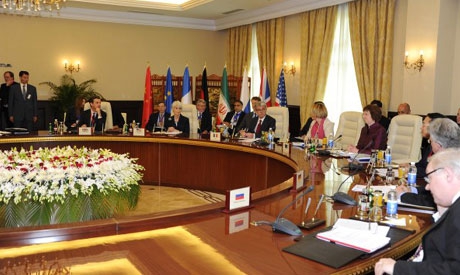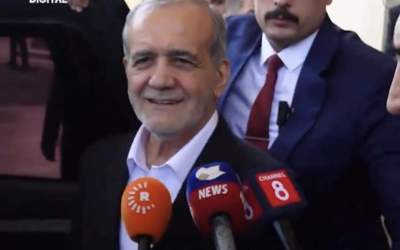TEHRAN, Oct. 23 (UPI) --�The "P5+1" talks among European powers, the United States, China and Iran -- stalled since June -- could resume next month, Iranian Foreign Minister Ali-Akbar Salehi says.
The Iranian diplomat told the semi-official Islamic Students' News Agency Sunday the negotiations over Tehran's uranium enrichment activities will "possibly" resume in late November.
The talks have been in recess since an intensive June session in Moscow, although a technical forum was held the following month.
"According to the latest negotiations, the (nuclear) talks between two sides will be held in November and possibly in late November," Salehi said, adding no decisions had been made on a venue.
Salehi's comments came less than a week after the European Union imposed a new round of economic sanctions as leverage to gain a halt to Tehran's enrichment activities, which the West suspects involves weapons production.
Iran vehemently denies the accusations, saying its program is only meant for civilian uses, such as in medicine, and is resisting the European Union's call for a halt to all uranium enrichment as a precursor to a deal.
Iranian Foreign Ministry Spokesman�Ramin Mehmanparast�told ISNA last week the European Union should be warned against thinking the imposition of further sanctions would work.
"We believe that the mistakes in their calculations keep them away from reaching a satisfying result," Mehmanparast said after EU High Representative�Catherine Ashton�announced the new sanctions.
"We recommend that instead of wrong approaches and insisting on pressures which only grow Iranian nation more integrated, they can be back to talks through a logical approach, they don't know the spirit of Iran's nation, such measures are wrong and have no achievement for them."
Ashton said before the Monday commission meeting she hoped the talks would resume "very soon."
The European Commission -- citing "serious and deepening concerns over Iran's nuclear program and the urgent need for Iran to comply with all its international obligations" -- on Oct. 15 moved to strengthen its economic sanctions regime against Iran.
The European Union specifically targeted the Iranian Revolutionary Guard Corps, which controls much of Iran's defense contracting industry. The new measures ban exports of aluminum, steel and industrial integration software to entities controlled by the IRGC.
They also broaden an existing export ban on key equipment for the Iranian oil, gas and petrochemical industries, while EU member-flagged vessels are prohibited from transporting or storing Iranian oil and petrochemical products.
The P5+1 group -- which includes the five permanent members of the U.N. Security Council plus Germany -- left the June 18-19 talks in Moscow talks without a deal. Aside from one round of technical talks, they have been suspended since then as evidence of increased economic stress within Iran have surfaced.
The New York Times reported Saturday the United States and Iran had for the first time agreed to one-on-one talks outside of the P5+1 following years of secret exchanges between the Washington and Iranian negotiators.
U.S. President�Barack Obama's administration, however, denied the report, saying in a statement, "It's not true that the United States and Iran have agreed to one-on-one talks or any meeting after the American elections."
National Security Council spokesman�Tommy Vietor�said Washington would "continue to work with the P5+1 on a diplomatic solution," adding the United States has "said from the outset that we would be prepared to meet bilaterally."
The Iran Project is not responsible for the content of quoted articles.
# Tags











